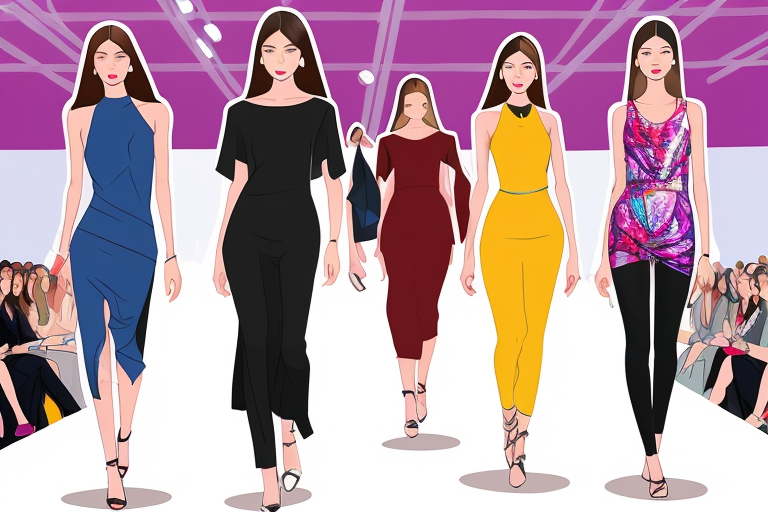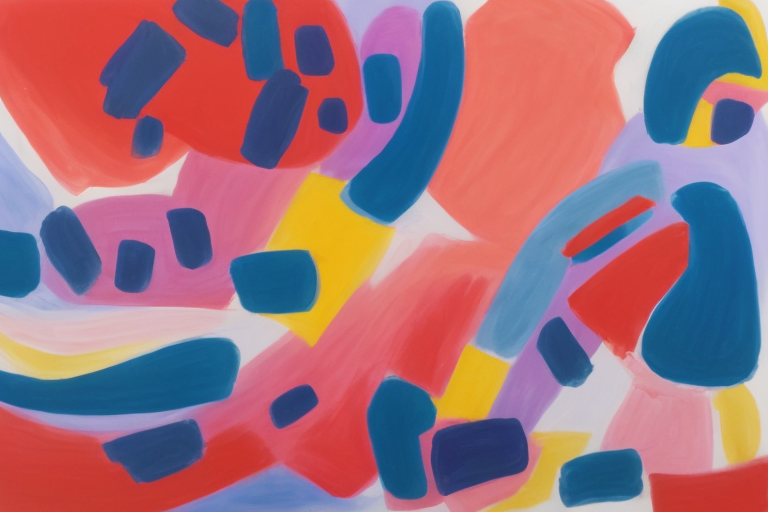The Rise of Mindful Fashion
Fashion has always been a reflection of our society and culture. It is a form of self-expression and creativity that allows us to showcase our individuality. However, the fashion industry has also been known for its negative impact on the environment and labor practices. The rise of fast fashion has made it easier and cheaper to keep up with the latest trends, but at what cost?
Fast fashion is a term used to describe the rapid production of clothing and accessories in response to the latest trends. This model relies on cheap labor and low-quality materials to keep costs down, resulting in a cycle of overconsumption and waste. According to the United Nations, the fashion industry is responsible for 10% of global carbon emissions and is the second-largest consumer of water worldwide. Additionally, the industry is known for its exploitative labor practices, with workers often being paid low wages and working in unsafe conditions.
As consumers become more aware of the negative impact of fast fashion, a new movement is emerging – mindful fashion. Mindful fashion is a holistic approach to fashion that takes into account the environmental and social impact of clothing production. It is about creating a more sustainable and ethical fashion industry that benefits everyone involved – from the workers who make the clothes to the consumers who wear them.
The principles of mindful fashion include reducing waste, using sustainable materials, and promoting fair labor practices. This means designing clothes that are made to last, using natural and recycled materials, and paying workers fair wages. Brands and designers who prioritize these principles are leading the way in sustainable fashion, offering consumers an alternative to fast fashion.
The rise of mindful fashion is a positive development for the fashion industry. It offers a way to address the negative impact of fast fashion and create a more sustainable and ethical future. By supporting brands and designers who prioritize sustainability and ethical practices, we can make a difference and create a more positive future for fashion.
With that said, let’s delve deeper into the negative impact of fast fashion in the next section.
Mindful Fashion: Changing the Industry
In recent years, the fashion industry has seen a significant shift towards more sustainable and ethical practices. This movement, known as mindful fashion, is changing the way we think about clothing and its impact on the environment and society. Mindful fashion is all about creating clothing that is not only beautiful and functional but also sustainable and ethical.
One of the key principles of mindful fashion is sustainability. This means using materials that are eco-friendly and reducing waste throughout the production process. Many designers and brands are now using recycled materials, organic cotton, and other sustainable materials to create their clothing. They are also using innovative techniques to reduce waste and minimize the environmental impact of their production processes.
Another principle of mindful fashion is ethical production. This means ensuring that workers are treated fairly and paid a living wage. Many fast fashion companies have been criticized for their exploitative labor practices, including the use of child labor and unsafe working conditions. Mindful fashion brands are committed to ensuring that their clothing is produced in a way that is ethical and sustainable.
One of the key players in the mindful fashion movement is Stella McCartney. She is a British designer who has been at the forefront of sustainable fashion for many years. Her brand is committed to using sustainable materials and ethical production practices. She has also been a vocal advocate for animal rights and has never used leather or fur in her designs.
Another designer who is making waves in the mindful fashion movement is Eileen Fisher. Her brand is committed to using sustainable materials and ethical production practices. She has also launched a program to take back and recycle old clothing, reducing waste and promoting sustainability.
Frankie, the son of designer Donna Karan, is also making a name for himself in the sustainable fashion industry. His brand, Urban Zen, is committed to using sustainable materials and ethical production practices. He has also launched a program to support artisans and preserve traditional crafts.
Uvanni, a sustainable fashion brand based in Italy, is also making a significant impact in the industry. They use only sustainable materials and ethical production practices, and their designs are both beautiful and functional. They are committed to reducing waste and minimizing their environmental impact.
The Principles and Practices of Mindful Fashion
As consumers become more aware of the negative impacts of fast fashion, a new movement towards mindful fashion has emerged. Mindful fashion is an approach to fashion that prioritizes sustainability, ethical production, and social responsibility. This means that designers and brands who practice mindful fashion are committed to reducing their environmental footprint, ensuring fair wages and working conditions for their employees, and supporting local communities.
One of the key principles of mindful fashion is the use of sustainable materials. This includes materials that are renewable, biodegradable, and non-toxic. Some examples of sustainable materials include organic cotton, hemp, bamboo, and recycled polyester. By using these materials, designers can reduce their impact on the environment and create products that are safer for consumers.
Another important principle of mindful fashion is ethical production. This means that designers and brands are committed to ensuring fair wages and working conditions for their employees. This includes providing safe working environments, fair compensation, and opportunities for professional development. By prioritizing ethical production, designers can create a positive impact on the lives of their employees and their communities.
In addition to sustainable materials and ethical production, mindful fashion also prioritizes social responsibility. This means that designers and brands are committed to supporting local communities and minimizing their impact on the environment. This can include initiatives such as using renewable energy, reducing waste, and supporting local artisans and craftspeople.
There are many brands and designers who are leading the way in sustainable and ethical fashion. One example is Stella McCartney, who has been a pioneer in sustainable fashion for over a decade. Her brand is committed to using sustainable materials and ethical production practices, and she has been vocal about the need for change in the fashion industry.
Another example is Patagonia, a company that is committed to environmental and social responsibility. They use sustainable materials in their products and are committed to reducing their environmental footprint. They also donate a portion of their profits to environmental causes and support local communities through their grant program.
Frankie, a designer based in New York City, is also committed to sustainable and ethical fashion. She uses recycled materials in her designs and is committed to reducing waste in the fashion industry. Her brand is also committed to providing fair wages and working conditions for her employees.
Overall, mindful fashion is a growing movement that is changing the way we think about fashion. By prioritizing sustainability, ethical production, and social responsibility, designers and brands can create a positive impact on the environment and the lives of their employees and communities. As consumers, we can also play a role in supporting mindful fashion by choosing to buy from brands that prioritize these principles.
The Future of Fashion: Innovation in Materials and Techniques
As the fashion industry continues to shift towards more sustainable practices, designers and companies are exploring new materials and techniques to create eco-friendly fashion. From recycled fabrics to innovative dyeing techniques, there are many exciting developments happening in the world of sustainable fashion.
One of the most promising areas of innovation is in the development of new materials. For example, companies like Bolt Threads are creating sustainable fabrics using biotechnology. Their Microsilk fabric is made from spider silk proteins, which are produced through a fermentation process using yeast. The result is a fabric that is strong, lightweight, and biodegradable.
Another innovative material being used in sustainable fashion is Piñatex, a leather alternative made from pineapple leaf fibers. This material is not only eco-friendly but also provides a new source of income for pineapple farmers in the Philippines.
In addition to new materials, designers and companies are also exploring new techniques for creating sustainable fashion. One of the most exciting developments is in the area of dyeing. Traditional dyeing processes can be incredibly harmful to the environment, but new techniques like digital printing and natural dyeing are changing the game. Companies like Colorep and The R Collective are using digital printing to create unique, sustainable designs without the use of water or chemicals. Meanwhile, brands like Botanical Colors are using natural dyes made from plants to create beautiful, sustainable fabrics.
Of course, innovation in sustainable fashion isn’t limited to materials and techniques. Companies are also exploring new business models to make sustainable fashion more accessible and affordable. For example, Rent the Runway allows customers to rent designer clothing for special occasions, reducing the need for fast fashion purchases. Meanwhile, companies like Everlane are transparent about their supply chain and pricing, allowing customers to make informed decisions about their purchases.
Overall, the future of sustainable fashion looks bright thanks to continued innovation in materials, techniques, and business models. As more designers and companies embrace sustainable practices, we can look forward to a fashion industry that is both stylish and eco-friendly.
The Future of Fashion
The fashion industry is one of the largest contributors to global pollution and waste. Fast fashion, in particular, has been identified as a major culprit in the degradation of the environment and the exploitation of workers in developing countries. However, the emergence of mindful fashion has given rise to hope for a more sustainable and ethical future for the fashion industry.
As consumers become more aware of the negative impacts of fast fashion, they are beginning to demand more sustainable and ethical alternatives. This shift in consumer behavior is forcing fashion companies to re-evaluate their practices and adopt more responsible approaches to production and consumption.
One of the most significant potential impacts of mindful fashion is the reduction of waste and pollution in the fashion industry. By prioritizing sustainable materials and production processes, fashion companies can significantly reduce their carbon footprint and minimize the amount of waste they generate. This, in turn, can help to mitigate the negative environmental impacts of the fashion industry and contribute to a more sustainable future for the planet.
Mindful fashion can also have a positive impact on the social and economic aspects of the fashion industry. By prioritizing ethical labor practices and fair wages for workers, fashion companies can help to improve the lives of people in developing countries and promote social justice and equality. This can also lead to increased economic stability and growth in these regions, as workers are able to earn a fair wage and support their families.
In addition to these social and environmental benefits, mindful fashion can also be a source of innovation and creativity in the fashion industry. By embracing new materials and production techniques, fashion designers can create unique and innovative designs that are both sustainable and visually appealing. This can help to drive the fashion industry forward and inspire new trends and styles.
Overall, the future of the fashion industry looks bright with the adoption of mindful fashion practices. By prioritizing sustainability and ethical practices, fashion companies can help to create a more just and equitable world while also contributing to a more sustainable future for the planet. As consumers become more aware of the negative impacts of fast fashion, the demand for sustainable and ethical alternatives will continue to grow, and the fashion industry will need to adapt to meet these changing needs.









